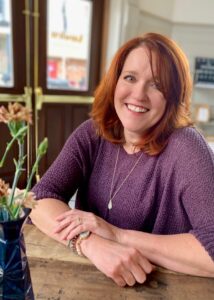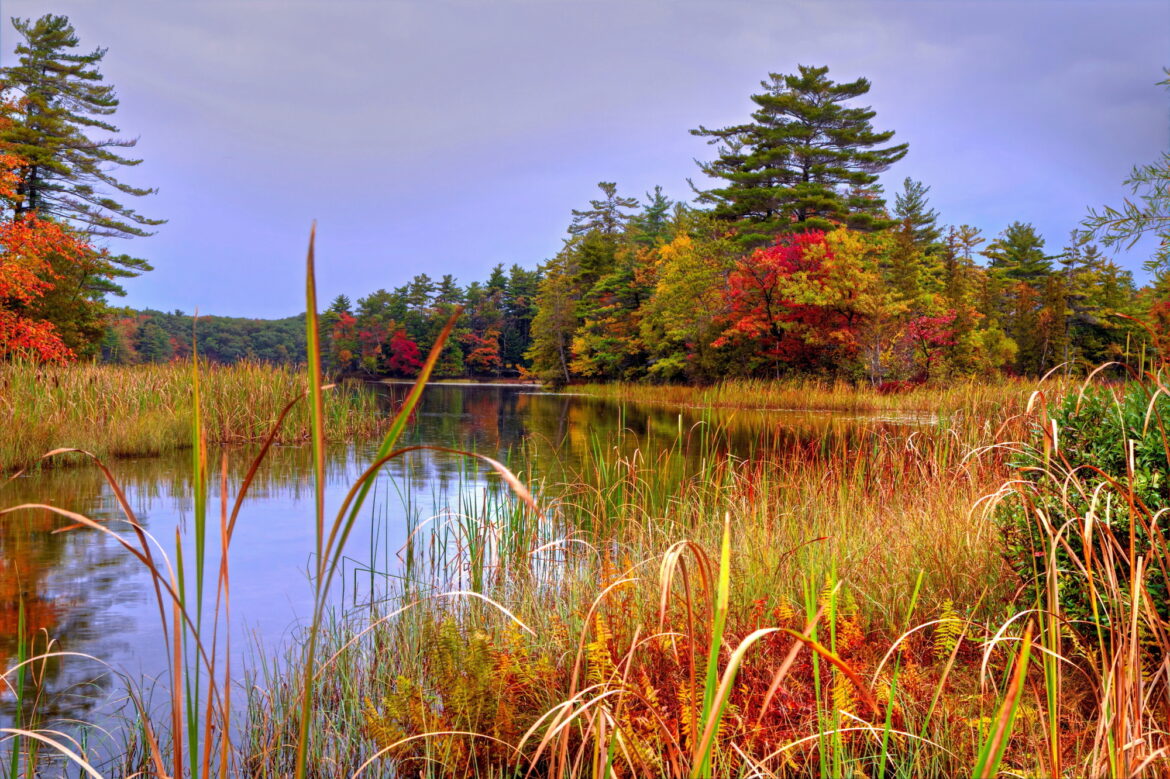Being in the aftermath of a DNA surprise is like living in two worlds that overlap.
By Candy Wafford
“Dad had the same color green eyes,” my brother said as he slid into the booth across from me. I was meeting him and my sister for the first time, and as much as we were trying to keep things light, it was awkward. I took a deep breath, willing myself to relax, and smoothed the navy sundress I chose to wear for an occasion that was casual yet monumental. I smiled and looked at my new brother’s face—the face of a stranger—yet one in which I saw a whisper of familiarity. Squirming in my chair, I realized I could be talking about my own face, one I barely recognized anymore.
How did I get here? I’d taken a DNA test for fun, never imagining it would change my life and my identity. Finding out that my dad—the man I grew up thinking was responsible for my thick hair and long skinny feet—was not my biological father rocked my world and led me on a journey of tearing myself apart and putting myself back together again.
Stumbling across the word ecotone recently, I learned it is the area between two biological places with characteristics of each. A marsh, the boundary between water and land, is an ecotone. Like a marsh that is part this and part that, I too, am an ecotone.
Finding out the truth of my paternity was a gradual process; I was like an archaeologist painstakingly cleaning layers of dirt from an artifact. First were the DNA test results with unexpected heritage. This led to examining my existing family tree, each climb up it leading to dead ends. DNA testing companies notify you when your DNA matches someone else in their databases, and as I began to receive these notifications, the names of the matches were foreign. I realized something was out of place, and my gut was telling me it was me. I began receiving messages from my DNA family, each one kind and inquiring, as they too were trying to make me fit.
Eventually, suspicions turned to proof, and my biology shifted. I was out of place. Unlike tectonic shifts that move the Earth’s plates either toward or away from each other, finding out that I biologically belong somewhere else, simultaneously moved me away from one place and toward another.
At times I felt adrift, clinging to what I had always known about myself and my family, and at others time slowly swimming to this new place, like a chunk of an iceberg breaking off and floating alone in a dark blue sea. Often exhilarated and sometimes exhausted, I felt like I was straddling two places, two families. Not really fitting into either. Bits and pieces of each floating inside me, like the delicate snow in a globe before it settles to reveal the scene that had been hidden.
Someone asked me recently if I had suspected anything growing up. I didn’t. No one did. I had often wondered why I was different, but attributed it to being a middle child or maybe to my parents’ divorce or my mother’s death. Never questioning made the surprise even more jarring, a lightning bolt striking the relative calm of my life.
I played it cool when relaying the news to my siblings, the ones that I grew up with, each one shocked, because none of us had questioned my place. “You always were different than us,” said my brother, upon finding out we didn’t share the same father. And I was different than my family, but the differences weren’t startling. They were subtle, like one of those which-one-doesn’t-belong puzzles where you squint to find small differences like an extra stripe on a tie or one sleeve longer than the other.
As my new truth sunk in, I began seeing evidence that this other part of me had been there all along. My husband and I were on vacation in Lisbon and had spent a hot and sticky day sightseeing in the city. As we stepped into the cool air of our rental, I spied myself in a mirror, my hair, curly and wild, a halo of frizz from the humidity. “We should have known, just from my hair,” I said wistfully to my husband as he brushed past. And all those summers growing up, before parents slathered their little ones with sunscreen, it had been the Mediterranean blood running through my veins that protected my fair skin as it became the color of honey, while my sister’s skin turned as red as a berry. A hundred little signs.
Now when I see snapshots of my past, I feel a confusing jumble of emotions—sadness, anger, and melancholy—as tears sting my eyes. I pore over the photos, looking for things that didn’t belong in one place and those I found in the other place. I’ve become a new version of myself. An ecotone adapts and absorbs elements of two places; so had I.
I’ve made peace with who I am, but I often feel like a shadowy figure in both families, not fully belonging to either. I have eleven siblings, but none with whom I share both a mother and a biological father. This once stirred feelings of loneliness, but I now see it makes me unique, and I am working on appreciating it. I still search my face, with eyes the same color of green as a father I’ll never meet, but my face is my own again. And just as an ecotone is rich and diverse because it is made up of two lands, so am I.
Candy Wafford lives in Lexington, Kentucky with her husband and her cat, Roxie. When not selling software, she loves baking, traveling, spending time with her daughter, and eating ice cream. Her memoir-in-progress explores how she was able to find acceptance and release her grief from early mother loss and finding out she was an NPE. Follow her on Instagram @whereivebeentravel and check out her blog about travel and food, Where I’ve Been Travel.

BEFORE YOU GO…
Look on our home page for more articles and essays about NPEs, adoptees, and genetic genealogy.
- Please leave a comment below and share your thoughts.
- Let us know what you want to see in Severance. Send a message to bkjax@icloud.com.
- Tell us your stories. See guidelines.
- If you’re an NPE, adoptee, or donor conceived person; a sibling of someone in one of these groups; or a helping professional (for example, a therapist or genetic genealogist) you’re welcome to join our private Facebook group.
- Like us on Facebook and follow us on Twitter and Instagram @Severancemag.

